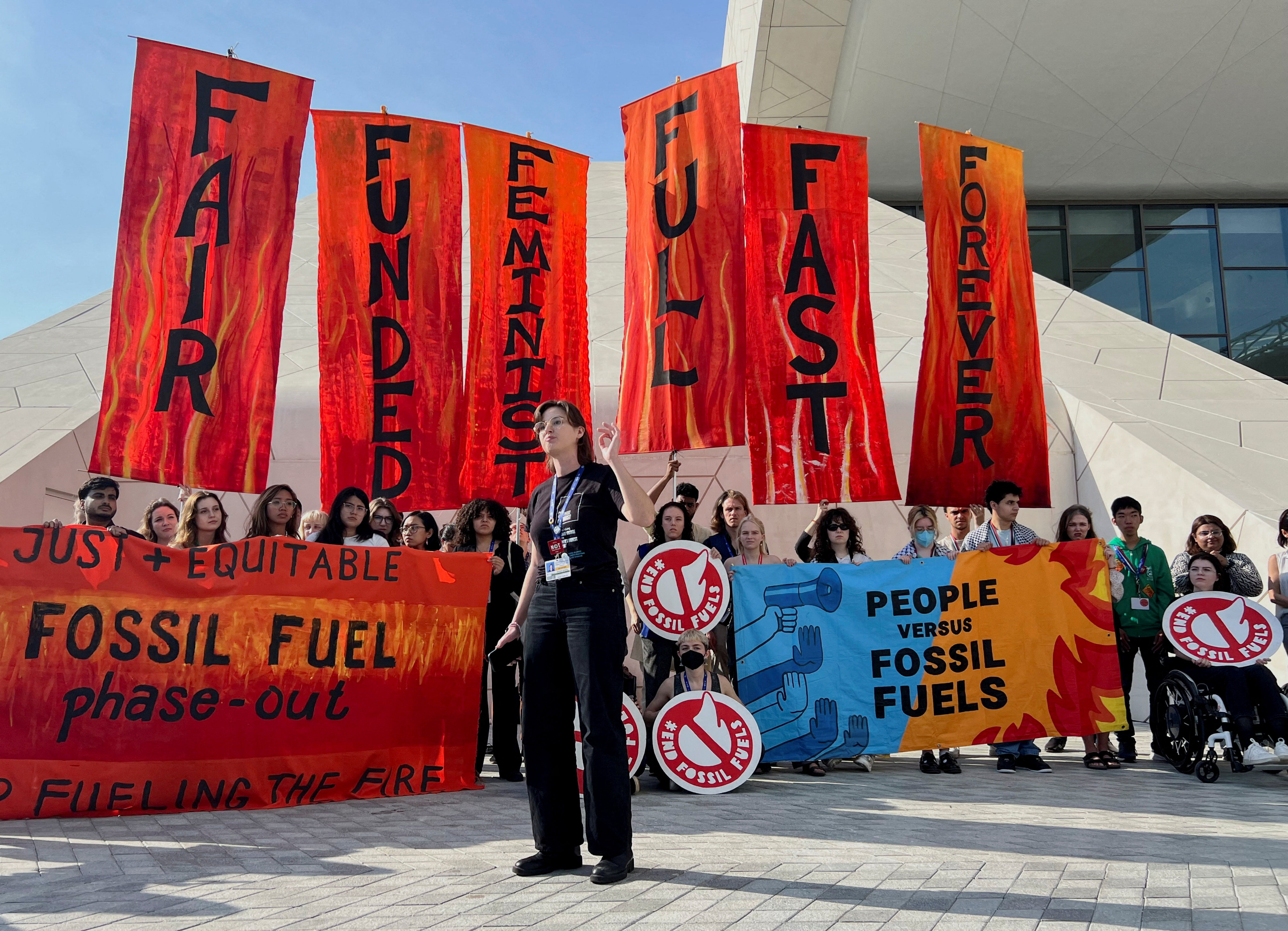Why Cop28 is the fossil fuel industry’s dream outcome (yes, you read that right)
So they’ve opened to transition away from fossil fuels... but there’s no actual requirement for them to do so. Which is why, for climate expert Mike Berners-Lee, the climate change conference hasn’t delivered


Before we look at the recent headlines about Cop28, some big-picture context is essential. The science has been telling us with absolute clarity, since before the first Cop in 1995, that the world needed to wean itself off fossil fuels.
We have now had a massive 28 international conferences on the climate emergency, increasing in scale from under 4,000 delegates in 1995 to over 97,000 this year, to try to get on top of the problem. I have colleagues who have never known a Cop-less world. Yet during that time, the rate at which we have been making the climate problem worse has risen steadily.
In fact, to the naked eye, there is no detectable evidence from the carbon curve that humans have noticed there could be an issue with climate change. In other words, aliens on another planet analysing carbon emissions data, would not be able to see that humans are trying to deal with a climate emergency.
We are now burning fossil fuels faster than ever before, and eating up our remaining carbon budget for 1.5 degrees at a hugely alarming rate of roughly 1.5 per cent per month.
So the question was always going to be, can Cop28 be different and somehow mark a turning point?
Many of us went into this Cop with especially low expectations. It is chaired by Sultan Ahmed Al Jaber, the chief executive of the Abu Dhabi National Oil Company which has plans to increase its production capacity from four million barrels a day, to five million barrels a day by 2027.
He has already been exposed, seemingly breaching his impartiality role by using the conference opportunity to shore up new oil deals on the side, and has also been caught on record saying he did not believe in the scientific case for reducing fossil fuel extraction (though he did later backtrack on this point, saying that both he and the UAE “very much believe and respect the science” behind climate change).
Meanwhile, this Cop was attended by a stronger fossil fuel lobby than ever before, and the meat industry tripled its presence, including 100 delegates representing their countries and thereby gaining privileged access to inner-circle discussions.
In the end, what did Cop28 deliver? The outcome, hailed by some as a historic moment, “calls on” governments to start transitioning away from all oil, coal and gas this decade with a view to reaching net zero by 2050, but contains no actual requirement to do so. This enables all parties to continue to expand over the next few years.
Better still for the fossil fuel industry, it conceals the catastrophic destruction of our climate and environment behind a narrative that sounds convincing, until you look under the bonnet. What is needed is a commitment to make rapid and immediate reductions in fossil fuel extraction.
The ambition to expand renewables is a smoke screen, because unless they replace fossil fuels – and that only happens if the fossil fuels are constrained – we won’t see the benefit of emissions falling. There is a call to double the rate of efficiency improvements, but sadly, the dynamics of the energy system are such that this actually has the effect of increasing total energy consumption unless there is a constraint somewhere – for example on fossil fuel extraction – which there isn’t.
The language sounds reassuring enough to make some of us relax, but contains caveats to allow zero action. It calls only for “inefficient” fossil fuel subsidies to be phased out. It calls for the recognition of transition fuels – and in doing so opens the door for the expansion of new gas fields, explicitly against the advice of the International Energy Agency.
Overall, the resolutions of this Cop will have no bearing on the rate of fossil fuel extraction. However, they will be used to keep humanity asleep over the climate emergency. The Cop process has hoovered up and wasted much of the world’s efforts to deal with climate breakdown – it has done more harm than good.
One key example is the loss and damages fund, so badly needed to ensure a workable pathway to transition for the developing world. At only $700m, it is negligible compared to the amount that would actually be needed to take action.
Anyone reporting this as a breakthrough is banking on a failure of their audience to properly grasp the difference between millions and billions. The money put up here is a drop in the bucket compared to the hundreds of billions of dollars that are actually needed.
To summarise, the four most important things that the Cop28 needed to focus on, but failed to with absolute clarity are: a rapid reduction of the rate at which fossil fuel is extracted and burned; reduction in global energy consumption, so that less fossil fuel is required and so that renewables can replace and not simply augment fossil fuels; a loss and damages fund at a scale that is commensurate with the transition needs of the developing world; rapid reduction of methane emissions, especially from the agriculture sector.
Cop28 was a catastrophic disappointment – and I’m not holding my breath for Cop29, either.
Mike Berners-Lee is an environmental consultant and a professor of Social Futures at Lancaster University





Join our commenting forum
Join thought-provoking conversations, follow other Independent readers and see their replies
Comments